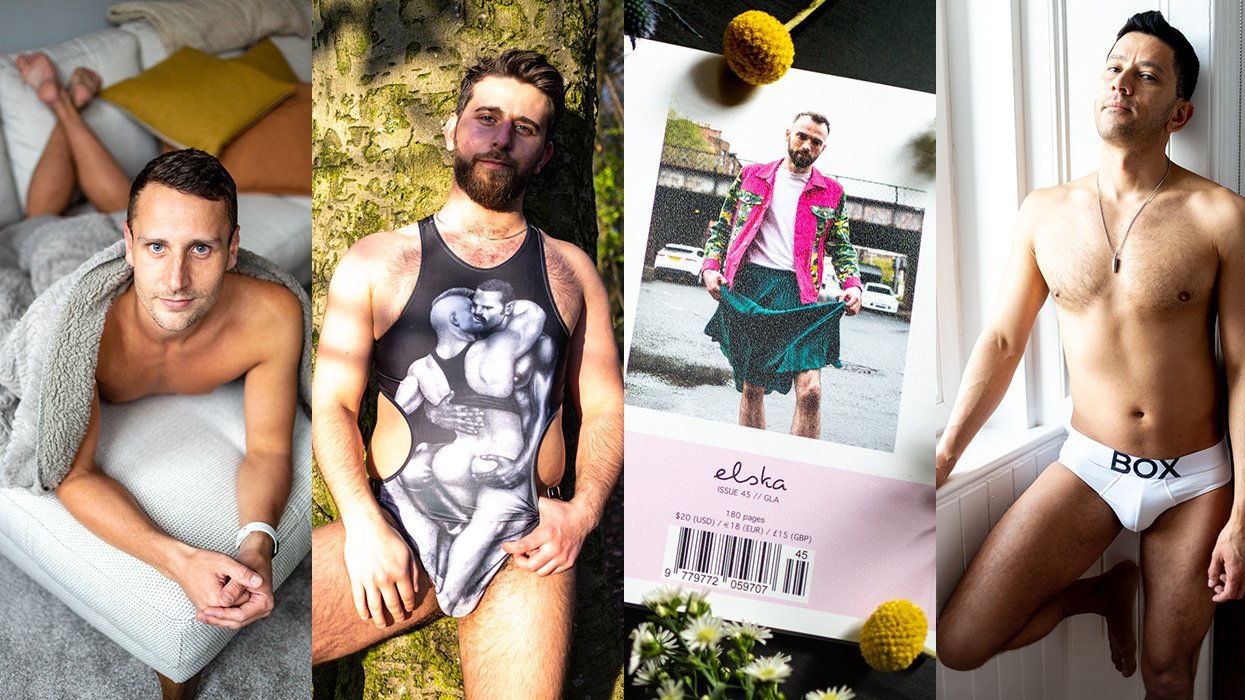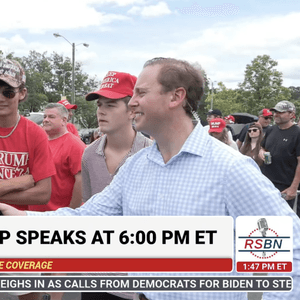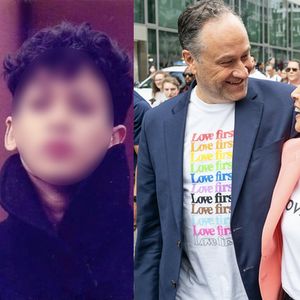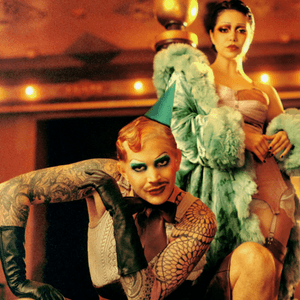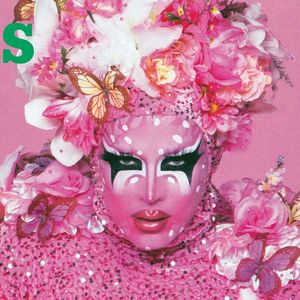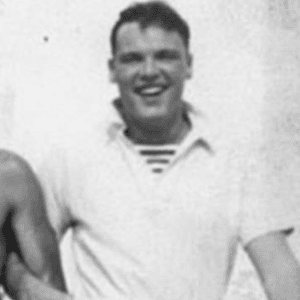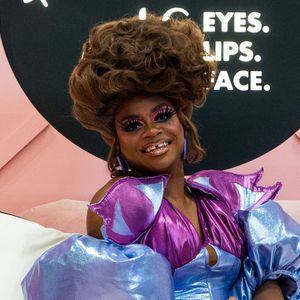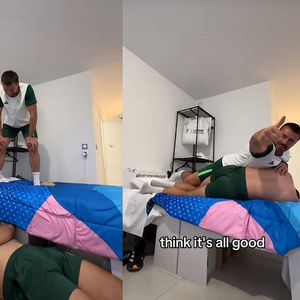In January of 2012, Tom Nestor and his partner, Kevin Lish, founded All Under One Roof, one of the few centers for LGBT youth in eastern Idaho. Located in the back room of Nestor's coffee shop, the center has become a popular hangout for bullied teenagers in the heavily Mormon town of Pocatello. In its inaugural year, the center has received tremendous support from the locals, despite the community's religious makeup. And there is a possibility of further progress in the city of 55,000 -- the Pocatello City Council, after having rejected an LGBT rights ordinance recently, is scheduled to consider a revamped one.
All Under One Roof has benefited from the passion and hard work of its board members, and they hope to expand the concept to other small cities in America to give LGBT youth a chance to find community. Through his efforts, Nestor has become a real-life iteration of Glee's ever-chipper, always-welcoming choir director Will Schuester, making a place for outcast kids. The Advocate spoke with Nestor to discuss why his center has become so valuable to the LGBT movement in Idaho.
The Advocate: What made you decide to start the center?
Tom Nestor: About three years ago, there was a young man here in Pocatello who was being bullied, and he commited suicide. We started out trying to get different organizations going. My partner and I had our building that we could donate, and we just decided that if we could prevent one young person from committing suicide, it would be worth every moment we put into it.
What was it like for you growing up in rural Idaho?
I was born and raised in a small town about 15 minutes away from Pocatello. It's a very dominant Mormon area. I didn't really have any problem, because my family was from here, but I knew that it was different for the other kids. I didn't realize that until I was in the seventh or eighth grade. I still didn't have a name about why I was different until I was in high school. By then I was being jammed into lockers, being called "faggot" and "queer" and stuff like that. So it was the typical growing up in rural Idaho, being the non-Mormon individual I am, and also being gay. It was tough. But I made it through, by all means.
There are so many Mormons in that part of America. Has that made what you're doing harder or easier?
We have a nondiscrimination ordinance trying to get passed here, and the church has really gotten involved with trying to keep it from passing. I was always the misfit because I didn't attend Sunday school. I quit the Boy Scouts because my scout leader said that I needed to go to Sunday school to stay in the Scouts, so I didn't even finish.
How has the reaction been in the area since you started the center?
Incredible. We have worked so hard. The placement of our board is incredible. We have an ex-county sheriff, who is our board chairman. My partner, who ran Mutual of Omaha for years, is on the board. Our treasurer was a former banker here in Pocatello and actually has a son who is transitioning right now. Our secretary was the principal of a junior high for over 23 years and has been a friend all my life. We have Dr. David Hachey, who is our pharmacist. He is a large part of HIV prevention [efforts] here in Pocatello. We have Dr. Cherie Atkins, who is a lesbian. She's a child psychiatrist. We try to put people on the board that everyone can relate to. It always astounds me when straight people want to do things. I think it's incredible, but at the same time, they haven't walked in our shoes, so how can they speak for us? I can't talk lesbian, so it's better to have people on board who have been through the experiences and the process. Hailey Ruso just joined our board about two months ago. She is a trans woman and could help someone better than we can since she's been through it herself.
Does your center welcome kids from all grades and ages?
Actually, the youngest person we've dealt with is a 10-year-old trans girl. She was brought to the center shortly after we opened by her mother because she didn't know how to help her. I spent probably about 30 minutes with the little girl and her sister. I went back to the board members, who were there with the mother. They were all counseling her, and I said the only problem here is you adults. The only thing she has a problem [with] is when she goes to the bathroom and has the wrong parts. We're dealing with little 10-year-olds here.
 At left: Kevin Lish (center) at an open house for All Under One Roof.
At left: Kevin Lish (center) at an open house for All Under One Roof.Do you attract kids from outside of the city?
Right now we're just starting. We have, on average, about ten kids coming in. That's our problem -- reaching the kids that need help, getting out there and letting them know the center's here. With the nondiscrimination ordinance the city's trying to pass, we're trying to do it. The reason why we opened the center in the back of our coffee shop is because we didn't want the kids to be handpicked that they were going to the "gay place" or something like that. They can come in for a cup of coffee or something and no one would know they're coming to the center. So we're working to camouflage. [Laughs]I guess a lot of that is because of the pressure -- our politicians yelling damnation, and the preachers. Most of the time, these kids have one parent that has totally rejected them. We started what we call the "Kids Round Table," and one of the couples that started it were dear friends I went to high school with. They rejected their son because he was LGBT and they didn't end up talking to him for over three years. He had moved away to Texas, and when they started talking again, he ended up dying of an asthma attack. So I'm using their loss to hopefully tell parents that this is the chance you're taking by rejecting your children. We're working on their sorrows to hopefully wake somebody else up.
Did you build an HIV testing clinic and center for these kids?
This being the religious area it is, we don't talk [about] sexual education or testing in any of the high schools. So we built a room. There's a nurse that comes down and does HIV testing at any major function that we're doing. We will be doing that once a month. In fact, that'll be going up on our calendar in the next week or so. Then people can walk in and have free testing.
That's great. And you raised $10,000 in one event, didn't you?
The last event we had, yes. We beg and borrow for everything. We sent out invitations and raised close to $10,000 in one night. Again, I think a lot of that is [prompted by awareness around] the nondiscrimination ordinance. About a month before, two of our friends were gay-bashed in Pocatello at 2:30 a.m. I think by having that happen, with the ordinace they're trying to pass, it brought a lot of people to us and woke a lot of them up. This is needed really bad. We really work on the antibullying thing. We have two straight boys that come in. They go to Highland High School here, and they're being bullied because they're in choir and theater. They come in and show their support for the center -- it's kind of neat. The news is what's going to change everything for us.
How do you usually get the money, where does it come from?
Out of my pocketbook. Being the founder, I figure I needed to put my pocketbook where my mouth was. I put quite a bit of money on the end of that. There's a lot of people that support us. Being in business as long as I have, a lot of people know me and trust me. A lot of times, people just take out their checkbooks and start writing checks, saying, "I love what you're doing." There's a lot of generosity in this town for as closed-minded as it is.
 What's the gay community like in rural Idaho? I'm curious to find out how different life is, especially for young teenagers, in rural Idaho versus a big metoropolitan city.
What's the gay community like in rural Idaho? I'm curious to find out how different life is, especially for young teenagers, in rural Idaho versus a big metoropolitan city.One thing -- big cities usually have coffee houses and gift shops that [market] to LGBT people, but we don't have any of that here. I think it's really rough. I think the Internet makes it a lot easier for them because they can go online and do research, or meet people, which I think is very dangerous.
The gay community, as far as our age, is really no different in a bigger city. It's cliquish, you know. [Laughs] It's the same thing, but yours [near the Advocate office in Los Angeles] is a larger scale. I really worked hard in the last year to get everyone together and hold hands. My board director says "let's sing 'Kumbaya,'" but we have Idaho State University here. The kids at the university have their clubs and stuff, which is why we wanted our kids to be from 13 to 18. There's nothing here for them. That's why we thought it was so necessary. I remember those years. Pocatello still has our dominant religion. But it doesn't matter if we have the Mormons here or the Bible-thumpers back east or the Catholics. No matter where you are, they will have that control, which is no good for us.
Because Pocatello is a university town, which is slightly more diverse by nature, I'm wondering if you think the center would have been as welcomed as it has been if it was founded in another part of rural Idaho?
At the university, there are clubs, but they've really forced themselves to go in, because we have a huge Mormon institution here, which still has a lot of control over that. In fact, we opened All Under One Roof as "Advocates of Eastern Idaho," and the reason why we did that was for the 501(c)3 [nonprofit status] so we can help other organizations. Idaho Falls is 45 minutes away from here, and of course, they have resources in that area. The reason why we opened in eastern Idaho is if they wanted to do something like this, we can branch out as All Under One Roof and use the same 501(c)3 so they won't have to go through all the paperwork. People come to Pocatello because we have a gay bar, and they usually come down for that, but I don't see it growing and going to other places.
Well, this is how enormous things happen, by starting small. What do you want this organization to ultimately accomplish? What's your plan for the future?
The whole reason whyAll Under One Roof started was because of antibullying. There's tons of grant money there that you can apply for, but what I want it to become is an LGBT center for everybody. I would love to see a stage program. I'd like to eventually see if we can get something where we can encompass that, the testing, and the youth program; to start helping everybody. I think one of my biggest reasons for opening the center is not only to help the kids, but in this area everyone has viewed the LGBT community as only our local drag queens. I really want to mentor the kids [and show them] that there's a lot more out there. You can be anything you want. I want to teach Pocatello that we're more than just drag queens. We're doctors, we're lawyers, we're everybody else, and you can be that. I think that's a local problem with the community, because when we had the women's movement, they knew who they were. When we had the black movement, they knew who they were. But now we're fighting for equality and they don't know. Hell, I might be your husband's boyfriend! [Laughs] They don't know who we are, and I think they're running scared because of that.
What do you think might raise more awareness or get more support for the organization?
We beg for money to keep these doors open. We can grow a lot faster than what we're doing, but we're working with the dollars we have. We need sponsorship. There's a lot of giving people, but you can't keep going to them, because they give what they can, and eventually we're going to run out. I can honestly tell you, there was a man coming to the center when we first opened who quit showing up. His mother came in and gave me the biggest hug and thanked me. She knew that because of the center, we kept him from commiting suicide. Now that boy is transitioning and they're going to make it through because of the center and it's resources. I guess we must be doing it correctly.
When we started a year ago, we started putting things together. We've been doing AIDS awareness projects. We did the teddy bear function where people donate teddy bears that end up going to all the local hospitals. The donors knew it was our organization that was doing it. One of the things that made me so happy was seeing the parents donating these teddy bears to an LGBT center knowing that it's going to help somebody -- and it's those children that are going to make a difference in accepting us down the road. In the years we've been working on it, there's days I want throw my hands up and go "Oh, my God! All the work I have to put into this!" But seeing the kids with the teddy bears, knowing that we can help a 10-year-old trans girl, knowing that we can keep another kid from committing suicide because of the resources we have here, it's amazing. I think that the support we have in this small territory is because of the people we have on the board. Everyone knows that we're trustworthy. We're not going to be a fly-by-night thing.
Hopefully you can inspire other organizations to do the same.
The other day, we went to a city hearing and I had tears in my eyes. We were there for the nondiscrimination ordinance. There was a 63-year-old woman who was in a walker. She walked up to the podium. She had three minutes to speak. She came out that night and told everyone that she was gay. It was the first time she ever told anybody. She said she was tired of living in fear. We invited her to our fund-raiser, and when one of our board members knocked on her door, she barely opened it to get the invitation. We passed by her yard the other day, and one of the projects we're doing now is a yard clean-up and maintenance to help her out. That's the thing I want the youth to get into -- community projects, to show everyone that gays, lesbians, and transsexuals are no different than they are.
Editor's Note: Two answers were removed from this article at the request of a parent whose child's story was mentioned by Nestor.
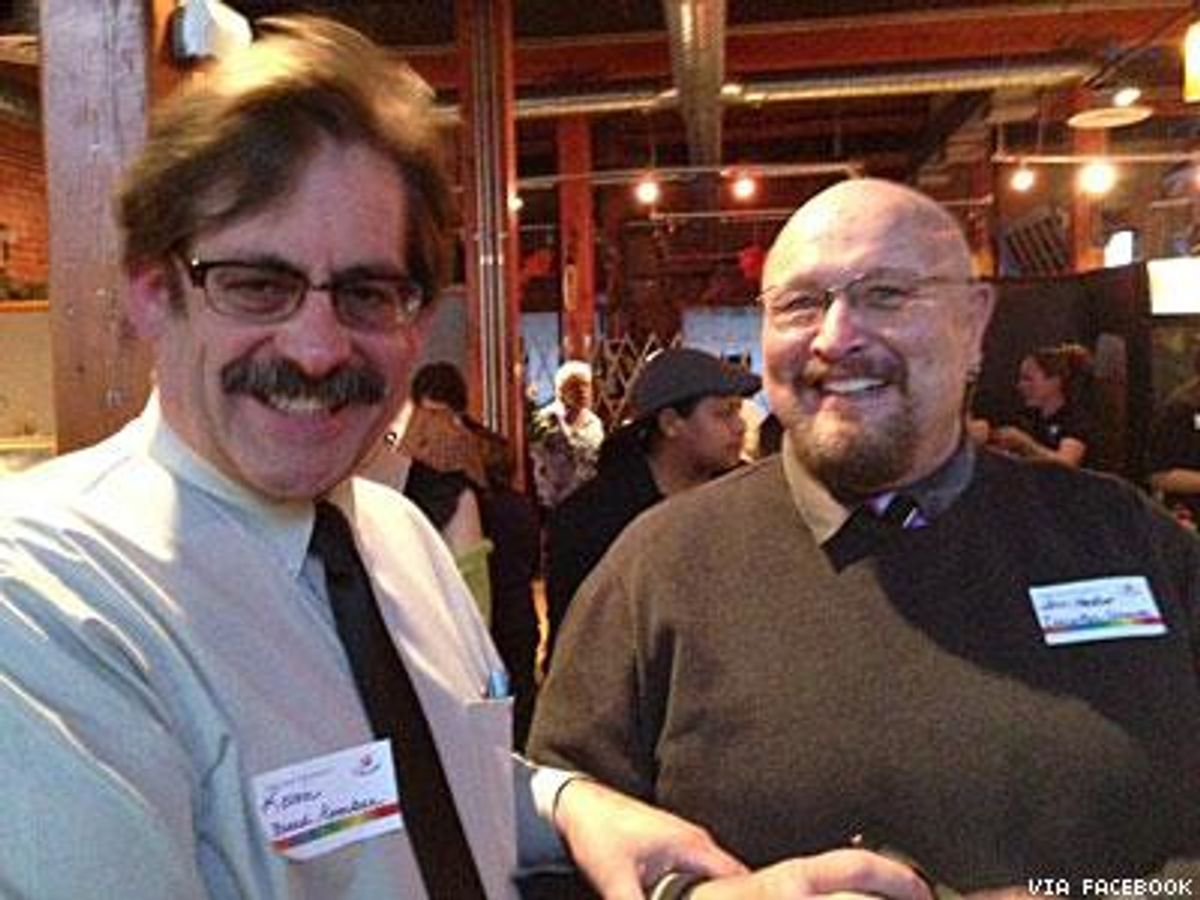

 At left: Kevin Lish (center) at an open house for All Under One Roof.
At left: Kevin Lish (center) at an open house for All Under One Roof. What's the gay community like in rural Idaho? I'm curious to find out how different life is, especially for young teenagers, in rural Idaho versus a big metoropolitan city.
What's the gay community like in rural Idaho? I'm curious to find out how different life is, especially for young teenagers, in rural Idaho versus a big metoropolitan city.








